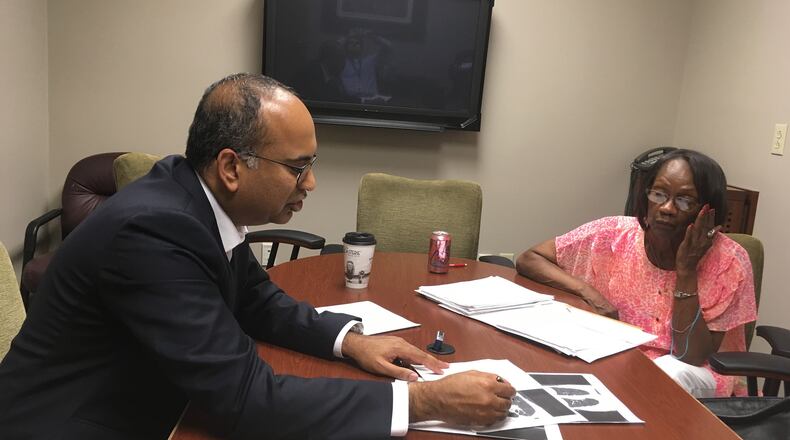KANSAS CITY, Mo. — Bettye Givens didn’t know that low-dose CT scans can catch lung cancer at its earliest, most treatable stages.
She didn’t know that they can also throw up false positives that lead to more invasive and risky follow-up tests.
She didn’t know there had been an ongoing controversy about whether the low-dose CT scans should be covered by Medicare or whether they cause more trouble than they prevent.
But Givens, from south Kansas City, knew she wanted to be tested for lung cancer, if possible, when she visited her doctor last October.
“Because I’ve smoked for so long, and I was being somewhat cautious,” Givens said.
As it turned out, Givens, 72, is exactly the sort of patient that the federal government decided in 2015 should get a low-dose CT scan, covered by Medicare: people age 55 to 77 who have a 30 “pack year” smoking history, meaning they’ve smoked a pack a day for 30 years, two packs a day for 15 years, three packs a day for 10 years, etc.
That coverage recommendation was based on a large, multi-year study that found a 20 percent reduction in lung cancer deaths among people roughly that age and smoking history who got the scans.
The American Lung Association estimates that about 9 million people nationwide fit the criteria. They’re more likely to live in Kansas and Missouri than elsewhere, given Missouri’s graying population and both states’ higher-than-average adult smoking rates.
But hardly anyone is getting the scan, even within the high-risk group.
Andrea McKee, a radiation oncologist in Massachusetts and scientific adviser to the lung association, said that a patient registry shows about 230,000 of the 9 million have been scanned: about 2.5 percent.
Why? McKee said in many cases, their doctors just might not know it’s an option.
“Doctors should know about medical advances, but we don’t take a test every year making sure we know what the latest advance in medicine is,” McKee said.
But Nirmal Veeramachaneni, a thoracic surgeon at the University of Kansas Hospital, said there’s more at play. Veeramachaneni, who wrote an article about the low-dose CT scan in a journal for Kansas City doctors, said there’s a shortage of qualified lung cancer screening programs outside of major metro areas.
There’s a good reason for that, he said: It’s hard for small, rural medical centers to replicate the results of the national study.
“The problem with the trial is, it was done at academic centers where you had expert radiologists who did nothing but look at chest CTs, and you had expert pulmonologists who could do some of the procedures required, plus you also had surgical expertise with minimally invasive surgeons,” Veeramachaneni said. “But you don’t get that nationwide. So if you’re in one of the smaller towns in Kansas, you might actually do more harm than good trying to screen.”
False positives lead to risky and unnecessary open-chest surgeries for smokers whose breathing is already compromised. Even at the centers that participated in the national trial, 16 deaths were due to such procedures and only 10 of those 16 patients were later found to actually have had lung cancer. The other six were operated on based on false positives.
Veeramachaneni said the federal Centers for Medicare and Medicaid Services, recommended covering the screening against the advice of its own advisory committee on new science and technology, which said covering the scans would lead to unequal care depending on where patients live.
“I call this the great health care divide: most places you go, you’re getting the big incision,” Veeramachaneni said.
Givens was referred to KU Hospital, where the low-dose CT scan turned up two suspicious nodules, one in each lung. Veeramachaneni excised bits of both using a minimally invasive surgery. One was a false positive, but the other was cancerous, so Veeramachaneni went in for a second procedure to excise it.
It was Stage 1 cancer, so Givens didn’t need chemotherapy and her prognosis is good. If it had progressed to later stages in which physical symptoms appear, her chances of survival would have dropped dramatically.
“I feel like the scan is very, very important,” Givens said. “It’s the difference between life and death and I think all persons should be able to have access to have this done.”
About the Author
Keep Reading
The Latest
Featured


